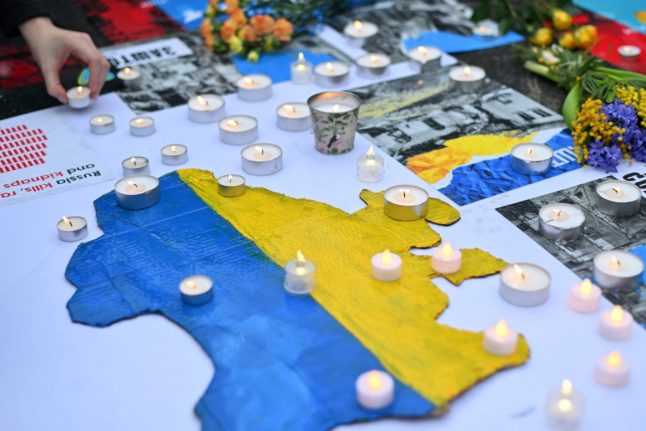Though Switzerland buys most of its natural gas through various European distribution channels, almost half of the country’s supply — an estimated 47 percent — is of Russian origin.
As gas is used to generate electricity, it is no wonder that Swiss authorities are worried about what would happen to essential services if the power goes out.
“We are not an island, so the war in Ukraine and the global energy crisis also affect Switzerland. In this context, there is no certainty about what awaits us”, Energy Minister Simonetta Sommaruga said during a press conference in June.
She added that “the energy crisis could hit us hard. That’s why we are concerned about preparing for emergencies.”
READ MORE: ‘It could hit us hard’: Switzerland prepares for impending gas shortage
When the power goes out, telephone service for fixed lines does too. While mobile phones will continue to work for as long as their batteries are charged, they too will ‘die’ if electricity is cut for an extended period of time.
For instance, Swisscom’s current backup power supply “consists of one hour of autonomy on all networks”.
This means that emergency calls for ambulances, police, and fire services will no longer be possible after this timeframe.
Emergency plans
However, some cantons have made contingency plans to manage such crises by setting up the so-called “emergency meeting points” — specially designated areas where residents could drive or walk to if they needed help quickly.
According to Diego Ochsner, head of the Office for Military Affairs and Civil Protection in the canton of Solothurn, these meeting points “are equipped with a Polycom device and an emergency power supply”, allowing unfettered communication with emergency services.
Polycom is a secure radio network used by authorities in crisis situations.
Most of these points are set up in community halls, schools, and sports facilities. You can find your nearest emergency point here.
However, while meeting points exist in a number of cantons — including Bern, St. Gallen, Aargau, Nidwalden, Lucerne, Schaffhausen, Zurich, and Zug — they are lacking in other regions, especially in the French-speaking part of the country.
READ MORE: MAP: Which Swiss cities will be most impacted by a gas shortage this winter?
“From our point of view, the ideal would be for more cantons to set up these points and for the federal government to take charge”, Ochsner said. “Unfortunately, we are still a long way from that.”
The government has not gotten involved in establishing more meeting points because it considers this task to be a cantonal, rather than a federal matter.
What should you do if you live in cantons that don’t provide this service?
The best approach is to inform yourself as soon as possible about the logistics your community has in place for reaching emergency services in case of a power outage.
You can obtain this information from your local civil protection office, which is usually listed on the official website of your canton.



 Please whitelist us to continue reading.
Please whitelist us to continue reading.
Dear Helena Bachman,
I went to the link site re info on cantons not having established these “meeting sites” and so not know where that sort of information could be found.
Secondly, Switzerland has been investing in wind power, and in some solar. I wonder where one finds statistics on how much is generated by alternative energy sources that are green, like wind, solar, geothermic, and hydro? Just curious, as this might help some with getting off of oil in general, and Russian oil specifically.
Lastly, I hear that Switzerland wants to partner more with Africa for its oil, any info around this?
I appreciate your excellent and professional reporting here, thank you!
Harriet Matter-Jones, Lausanne, VD